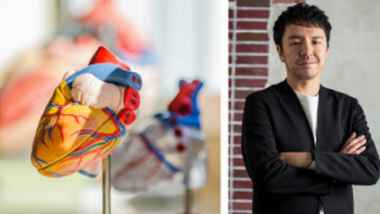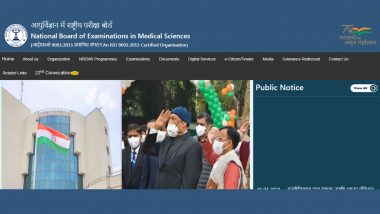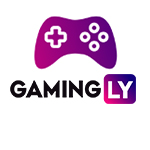"In 2000, I got enrolled in Tohoku University. I was particularly fond of my professor there, Dr. Junichi Nishizawa. He had the honor of being the first Japanese who was awarded the Jack Morton Prize. This recognition is also referred to as the Nobel Prize in the field of semiconductors.
I firmly believe that the constant dilemma between medical care and education is a social issue which requires great consideration, and that's exactly what I am doing. I voluntarily began a non-profit organization and visited Europe to learn about Finland and Sweden's prevailing educational systems. I discovered that various Municipalities are attempting to set up frameworks such as Neuvola to provide support. However, it should be noted that they are just creating systems and not working to make the present situation better.”
Having a fruitful discussion with Kenichi Hayashi. Diving into Kenichi’s thoughts in the field of Medical x Education.
The area that involves pharmaceuticals and medical tools is referred to as medical care, whereas the one which incorporates one's daily health management is called healthcare. As you can learn from the name itself, Medi-Care is the concept that integrates both of these areas and connects them. Using this idea, it would be conceivable to obtain health data regularly using digital devices. However, the real challenge would be to use the extracted data for medical purposes. I feel that it might require more health-related information and definitely more explorations in the field.
However, shaping this activity wasn't an easy task. It was a long, tiring process where I had to consider various options for the best possible results. I tried giving out several proposals, and I kept finding ways to support myself personally and my family. For me, it's crucial to keep my family happy and contented at all times. It would be pretty mean to think of my own and not consider their needs.
I concluded that "cultural workers" are the ones that can make this happen. A cultural worker isn't a commander or a critic. They are collaborators that help you fulfill your motto in the shortest possible time. My motto is to find the essence of some basic things and to balance practicality and academics appropriately. Ethnography is a means to achieve this goal.”
Could you share with us why you started this activity, being a “cultural worker” in this medical and technology field?
"The main reason behind my initiative was my children. I was always fond of spending time with them and interacting with them. It was during this interaction that I sensed their potential. As much as it delighted me, I also sensed a danger. This is the influence of parents. A book by Thomas Gordon, "Parenthood" highlights the impact of the environment, adults, parents, and even grandparents on children. They can likewise have both positive and negative effects. Hence, the child must adopt the good traits out of his surroundings.
When the idea popped up in my mind, I had an "aha" moment, and I instantly realized that what my parents did to me is the same as what I'm doing to my children! I reckoned my role in my children's life and felt that I'm the sole person responsible for widening their potentials or narrowing them down. I had to remove my own frame of reference; otherwise, I would never be able to bring the change I wanted to. Hence, I took this initiative."
What were the major obstacles you had to overcome when you initiated this activity?
"That was the issue of recognition for me. Since the activity I began wasn't known to people, they considered it as some sort of an imaginary thing that would cross countries. People had to learn about it and find out about this venture. If an ordinary employee from some private firm talks about it, I am sure no one would take that seriously. However, if the company itself does the same, a significant impact can be achieved, but hiring a company to do so is really expensive. Even if I begin promoting it on an individual level, I would hardly receive any consideration.
I want to spread this information from myself to the rest of the world. Together with people who agree to work with me, I would come back to Japan and overcome this issue. This is how I would get recognition in Japan."
What advice do you have for people who want to incorporate your insight?
"All I have to say is that don't blame others your standings. Take responsibility for every action you do. Let us all transcend national and cultural boundaries and work together to lay the foundation of something new."
Could you also share a few words on what changes do your projects could bring to people?
I am pretty sure you all are aware of the economic and social distortion created by the current pandemic. I want you all to realize how this distortion has always been a part of our society. Perhaps, Corona has manifested it in some ways.
Undoubtedly, the quality of education and medical care has improved since World War 2, especially in Japan, but the system has not yet changed. The economy is advancing at an increasing rate, and the resulting gap is being felt as a sense of discomfort. That's where my initiative will resume its role as it will fill this gap. The world around us is revolutionizing, and so are the areas of education and medicine. I hope my venture helps to solve social problems such as withdrawal and hence, make this society a more comfortable place to live in."
What goals do you have for your future?
"After successfully bridging the gap between medicine and education, I would like to mark my contribution on Early Childhood Development to nurture growing "children with a rich heart."
It was great learning about your initiative Kenichi. I am sure our readers find your messages to be beneficial, not only within the medical sector but for any one looking to incorporate betterment for them and their family’ health. Thank you for your precious time. We wish you good luck in your future endeavors.
Thank you.



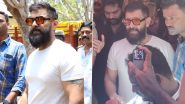
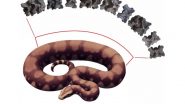



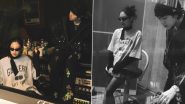
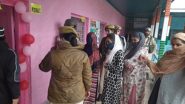


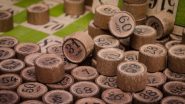

 Quickly
Quickly









